American Detox & Treatment Center
Drug Rehab for Benzos
- Benzo Drug Rehab in South Carolina
- An Overview of Our Benzo Rehab
- What is Benzo Drug Rehab?
- Is Benzo Withdrawal Dangerous?
- What Does Benzo Addiction Treatment Include?
- Why Choose Treatment in South Carolina?
- Taking the First Step
- FAQs about Benzo Drug Rehab in South Carolina
- We Work With All Major Insurances
- Get Started Today
Benzo Drug Rehab in South Carolina
Maybe there’s an orange pill bottle on your nightstand. The child-proof cap clicks; your phone buzzes with the reminder you set months ago “just in case.” If you’re reading this, you may be holding two hard truths at once: the medication that once steadied you is now getting in the way, and stopping feels risky. That isn’t a character flaw; it’s physiology. The FDA updated the boxed warning in 2020 to underscore real risks—dependence, difficult withdrawal, and overdose when benzos are mixed with other depressants.
In South Carolina, the larger overdose landscape is sobering and shifting. The state recorded 2,157 overdose deaths in 2023, and nationally 10,870 U.S. deaths involved benzodiazepines in 2023. At the same time, benzos remain widely prescribed; SC’s monitored dispensing rate was 383 prescriptions per 1,000 residents in 2023. If you feel unsure about change, it makes sense—you’re choosing safety in a landscape that hasn’t always felt safe.
An Overview of Our Benzo Rehab
Quitting benzodiazepines—often called “benzos”—like Xanax, Klonopin, or Valium can be dangerous without professional help. Benzodiazepine withdrawal can cause severe and life-threatening symptoms, including seizures, extreme anxiety, and psychosis. For this reason, a medically supervised detox is the safest and most effective way to stop using them.
At American Detox, our medical detox program provides 24/7 medical supervision and support to manage withdrawal symptoms safely. Our clinical team understands the unique challenges of benzo dependence and creates a personalized plan to help you taper off the medication comfortably.
What is Benzo Drug Rehab?
Benzo drug rehab (benzodiazepine addiction treatment) is a coordinated plan to stabilize, taper, and support people who have developed physical dependence or misuse patterns with medications like alprazolam, clonazepam, diazepam, lorazepam, and others. Because both classes slow breathing, mixing opioids with benzodiazepines raises overdose risk—one reason a structured program can be lifesaving.
Many clients begin with a clinically monitored detox process, then step down into structured residential care for therapy and stabilization.
Reach Our Care Team Directly by Text
Is Benzo Withdrawal Dangerous?
Why Medical Detox is Crucial for Benzo Withdrawal
Unlike withdrawal from some other substances, benzo withdrawal poses a significant risk of severe medical complications. A gradual, medically managed tapering schedule is essential. Here’s why a professional detox center is the best choice:- Safety: Medical professionals monitor vital signs and can intervene immediately to prevent dangerous complications like seizures.
- Comfort: Medications are administered to ease painful and distressing withdrawal symptoms such as insomnia, panic attacks, and muscle pain.
- Foundation for Recovery: Safely completing detox is the critical first step before you can address the underlying causes of addiction in further therapy and treatment.
What Does Benzo Addiction Treatment Include?
Medically Managed Withdrawal
- A clinician gets a clear picture of what you’re taking, how often, and what shows up between doses.
- You’ll start a slow reduction plan; this patient tapering guide explains typical reduction ranges (often 5–10% with pauses as needed).
- Rapid reversal is not the goal; flumazenil is discouraged for tapering because it can provoke severe withdrawal and seizures.
Therapy for the Reason Benzos Were Prescribed
- For chronic insomnia, the American College of Physicians endorses CBT-I as first-line treatment—it retrains sleep without sedatives.
- For anxiety and panic, CBT reduces symptoms effectively and can be combined with non-addictive medications when needed.
- Programs at American Detox also emphasize support for co-occurring conditions, since trauma, depression, or PTSD often intersect with benzo use.
Care Levels Matched to Your Needs
- Inpatient/residential if you need 24/7 monitoring or have complex co-occurring issues.
- Day treatment or IOP if you can sleep at home but need daily structure.
- Outpatient care if your taper is steady and supports are in place.
Safety Planning for Polysubstance Risks
Because fentanyl is pervasive, programs will screen for opioids, provide naloxone education, and coach on safer choices while the taper proceeds.Why Choose Treatment in South Carolina?
Local care helps with continuity and family support. South Carolina has both public networks and private programs. You can explore state-funded options through an interactive provider map, or begin with the South Carolina treatment hub for program information. Or contact us, we are a 24/7/365 medically staffed facility.
What to Expect Day-to-Day
- Medical check-ins to adjust taper pace, manage symptoms, and monitor vitals.
- Skills over pills: short, targeted sessions (breathing, exposure practice, sleep scheduling) that reduce symptoms without relying on sedatives.
- Medication review: non-addictive options for anxiety or sleep may be introduced when helpful.
- Relapse prevention: planning for travel, dental procedures, and acute stressors where benzo exposure often sneaks back in.
Clients can review preparing for admission guides to know what to bring, what not to bring, and what to expect during arrival. After treatment, we create personalized aftercare plans that support each client’s long-term success. Our team works with you to connect to ongoing treatment options, counseling, support groups, and community resources. By building a solid foundation for the next steps in recovery, we help ensure you leave with the tools, structure, and support needed to maintain sobriety and thrive in everyday life.
We Are Here For You
Taking the First Step
If you’re scared to start, that’s normal. Try one tiny move today: tell one person you trust; or schedule a consult; or jot down your current dose and time of day. What would make this feel 1% safer this week? Small, steady steps—backed by gradual tapering with clinical oversight—are what keep you safe.
When you’re ready, you can check insurance coverage or reach out through the contact page for immediate help.
FAQs about Benzo Drug Rehab in South Carolina
For personal guidance, speak with a licensed clinician; you can also check the FAQs page or reach out to admissions directly.
How long will benzo detox take?
There’s no one-size schedule. Your body sets the pace. A careful taper can take weeks to many months; for long-term users, full discontinuation may take over a year while staying safe and functional.
Are there medications for “benzo addiction” like there are for opioids?
No. There’s no FDA-approved maintenance medication for benzodiazepine use disorder, and flumazenil is not recommended for tapering due to seizure risk. Most care relies on gradual dose reduction, therapy, and treatment of co-occurring conditions.
What if I’m also prescribed opioids?
This combination is higher-risk because both suppress breathing; co-use raises overdose danger. Tell your care team so they can coordinate tapers, add overdose education, and keep prescribers aligned.
We Work With All Major Insurances.
Everyone deserves exceptional care, no matter their financial situation. That’s why we’ve partnered with various insurance providers to make our services as accessible as possible. Our admissions team will assist you in navigating insurance claims and benefits so you can focus on your health and well-being. We are in network with Cigna, UHC, Ambetter, BCBS, UMR, and Instil Health.
We unfortunately do not accept Medicaid/Medicare.




















Get Started Today
This form is monitored during day time office hours only. If you are experiencing a medical or mental health emergency, please do not use this form. For emergencies, please call 911 or visit your local emergency room.
